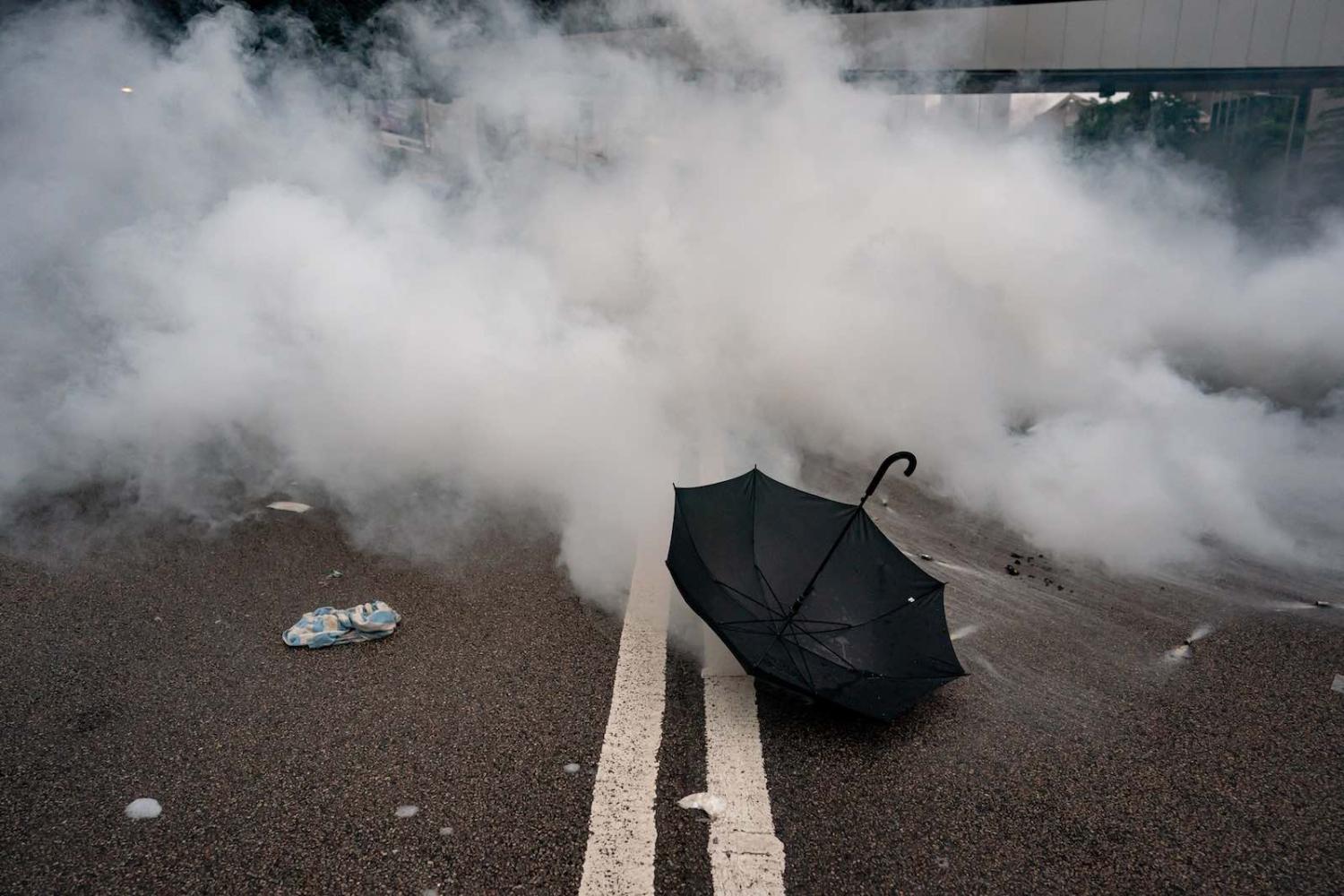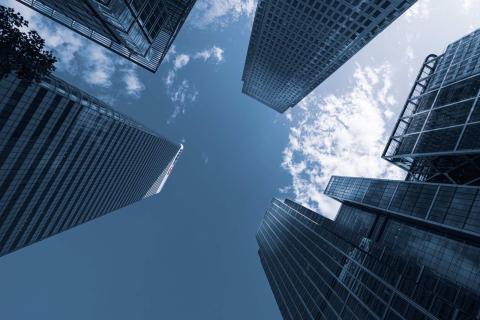Before Hong Kong became a by-word for months of street protests and fears of an ever-growing crackdown, Vivienne Chow reflected earlier this year on the contrasting traditions that stem from heritage and modernity, the quest for wealth versus happiness.
Blocking people’s pathway to fortune is considered sinful in Hong Kong. It is not a crime written in the law, but the idea is widely understood in society. It is said that such an act is comparable to killing one’s parents.
In what became an important marker for the year to follow, in April Graeme Smith looked back at fate of 2014 protesters as a verdict loomed for trials related to an earlier campaign.
It became known as the Umbrella Movement when marchers used brollies to protect themselves from pepper spray and tear gas. Despite the protests being absurdly well-mannered – sharing food and medicine, setting up a recycling system and even commissioning art – some of the movement’s leaders face court charges that include “inciting people to incite others to cause public nuisance”.
But it was a newly proposed law that again turned out Hongkongers to demonstrate in extraordinary numbers after the local authorities, with backing from Beijing, sought to push through an extradition law with mainland China. Audrey Li wondered why China’s rulers could never admit a mistake?
What has been presented to the Chinese public is that the government did 100% right and had no share of the blame. A similar tendency is also on display in Hong Kong in reaction to recent protests. More than one million demonstrators have taken to the streets in recent days against the government’s controversial extradition bill that would allow criminal suspects to be sent to mainland China, because the mainland’s human rights conditions have made people in Hong Kong suspicious and distrustful of its authorities. Despite everything, the Hong Kong government still vows to push ahead with the bill and Beijing strongly backs it, voicing opposition to “outside interference”.
This was, as Vivienne Chow described it, the Umbrella Movement 2.0.
It is not only opposition against the Carrie Lam-led Hong Kong government and the extradition bill. It exposes the fundamental flaws of the ideals of “one country, two systems” as China grew stronger as an economic power that attempts to challenge the dominance of the West, while Hong Kong’s attempts to hold onto its identity and accidentally embroils itself in these global conflicts. The latest protest has also united more people and public opinion than four-and-a-half years ago.
Indeed, the protests appeared much bigger and proved more enduring, as much as China sought to engineer a backdown. Ben Bland.
The Hong Kong government’s decision on Saturday to suspend the hated extradition bill will ease the squeeze that Beijing is facing from said “foreign forces” or international governments, as those who are not Marxist-Leninists prefer to say. China had come under intense outside pressure over the bill, which would have allowed people in semi-autonomous Hong Kong to be extradited to mainland China for the first time … this humiliating climbdown, which will have required sign-off at the highest levels of the Chinese Communist Party, also takes some international heat off Beijing when it is fighting many fires at once.
But the protesters had no intention of letting up, spilling onto the streets more and more determined, morphing from demands around the extradition law to a broader movement, and increasingly finding themselves in often violent stand-offs with police. The wider regional ramifications also started to become apparent, in Taiwan (see Randy Mulyanto) and Singapore, too (see Jason Lim). Sarah Logan looked into the online battleground, especially Facebook as a tool for organising and propaganda alike.
Taking action on Chinese-government accounts, especially on an issue as central to the CCP as Hong Kong, and in the context of a technology-driven trade war, clearly marks the American platforms as international actors.
Elliott Zaagman examined China’s “great delusion”, skillfully deploying nationalism along with economic carrots and sticks, yet in the case of Hong Kong, blundering badly.
The 2019 protest movement began with opposition to a proposed extradition bill that would have allowed mainland authorities to circumvent Hong Kong’s judicial system and try Hong Kong criminal suspects in a system with a conviction rate over 99%.
Economic issues may provide dry tinder, but it is issues of rights, democracy, and national identity which consistently light the match.
Yet a propaganda war is exactly the type of fight the CCP is willing to have, and JJ Rose worried China was winning.
Pushing the movement into violence has the same effect. It narrows the target and puts an emphasis on the hardcore protesters. They can then be portrayed as radicals, thus tarring the whole movement. This characterisation justifies shutting the protests down and clamping down on the protesters. In a situation where the movement has no identifiable leaders, this is the next best way of decapitating it.
Vivienne Chow saw hope in the people’s voice, using local elections in November as a platform to send a clear signal that the demands for justice would not soon subside.
On the bright side, Hong Kong people’s fight for democracy has successfully put the city in the spotlight of global diplomacy. The US Congress has passed the Hong Kong Human Rights and Democracy Act in order to keep a close eye on the situation of Hong Kong, and this is a powerful message sent to the allies of the US. Hongkongers have also put up a good fight on Sunday at the District Council election, that regardless of the 6:4 proportion between the total number of votes for pro-democracy vs pro-Beijing camps, the extraordinarily high turnout rate shows Hong Kong’s great desire for democracy. Hongkongers are truly capable of expressing their views through a peaceful and rational election despite the ongoing demonstrations that have been descended into violence and chaos caused by both the police and protesters.

